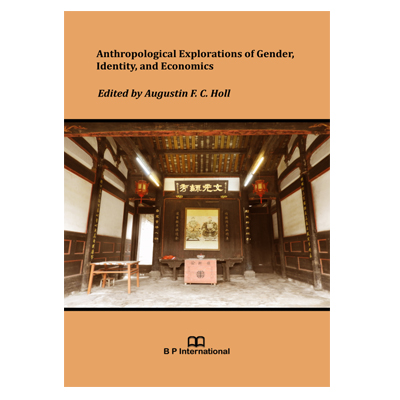“Anthropological Explorations of Gender, Identity, and Economics” is the third and last installment of the exciting research work conducted with motivated and sharp minded post-graduate and doctoral students from the department of Anthropology and Ethnology of Xiamen university, in Xiamen city, Fujian Province of the People’s Republic of China during the last 4 years.
2024 is the 41st and final years of my academic career as an active Distinguished university Professor. During all these years and starting from 1983, I worked and taught at different research and higher education institutions in Africa, Europe, America, and Asia. I started at the university of Paris-Nanterre – then Universite Paris-X Nanterre – in France, and moved successively to the University of California-San Diego and the University of Michigan, Ann Arbor in the United States of America, then back to the University of Paris-Nanterre and took the position of Deputy Director at the Humanities and Social Science Institute of the CNRS (Centre National de la Recherche Scientifique) in France, and finally, moved to Xiamen University in 2017. All along, I taught as Visiting-Professor or Resident Guest at Cheikh-Anta Diop University in Senegal, Yaounde I-University in Cameroon, and the Institute of Advanced Studies of the Federal University of Minas Gerais at Belo-Horizonte in Brazil.
Working directly with undergraduate and graduate students in the field in archaeological research projects in Belgium, Burkina Faso, Cameroon, France, Israel, and Senegal, and in the laboratory at the University of California-San Diego and the University of Michigan, Ann Arbor in the United States of America have always been part of the most rewarding experience of my academic career, resulting in many cases in co-authored peer-reviewed publications.
The publication of this third and last edited volume resulting from Xiamen University “Writing Anthropology Seminar” is but the continuation of my commitment to a “pedagogy of action” that engages students in class-room, field studies, and archaeological laboratory training for the sake of nurturing talents and promoting exploration of the unknown. My 7 years’ experience at Xiamen university and by extension in China higher education institutions is quite contrasted. On the one hand, I have had very positive and rewarding interaction with open-minded, hard-working, and motivated undergraduate and graduate students. On the other hand, in contrast, I quickly realized the impossibility of crafting joined research with fellow-faculty members in a department with scattered individuals without any sense of common destiny beyond the usual slogans. It is however the strongly individualized system of rewards and promotion set in place in China Higher education that has generated that nefarious form of adaptation. Without going into details, most of faculty members in current Chinese institutions of Higher education are trapped in a kind of “rat race”, a competitive, exhausting, and endless rush for distinctions, rewards, and career advancement. Offered the job as a senior full professor past the official China retirement age, I was lucky to be out of the race right from the beginning. This allowed me to keep and expand my commitment to nurturing and supporting students research and publish at my own tempo.
The essays assembled in “Anthropological Explorations of Gender, Identity, and Economics” feature the takes of a young generation of sharp-minded future anthropologists. They explored current themes in China anthropology but also delve on emerging research topics essentially in contemporary predominantly conservative Confucian China. Explorations in gender issues are making significant progress in addressing broadening range of formerly taboo issues, challenging the predominant traditional patriarchal mind-set. Identities and forms of belonging are like the Roman God Janus, who with his two opposed bearded faces represents the dual and contrasted aspects of all realities. As demonstrated in the assembled papers, identities and forms of belongings that vary enormously across cultures are products of history and are as such in constant reshaping and reformulation depending on the time-scale under consideration. As the saying goes, “Change is constant, and stability the exception”. It is unfortunate that the strong intellectual movement inspired in the 1970s-1980s that shaped the development of the dynamic subfield of economic anthropology, represented by star researchers like Maurice Godelier, Marvin Harris, Karl Polanyi, or Roy Rappaport – to mention but a few – is marginal in China Anthropology today. The sample assembled in the books “Economic Discourse” suggests however that there is hope in the future.
It is with sheer and unapologetic delight that I have worked with the young bright minds who contributed to the outstanding educational experience condensed in this volume.





